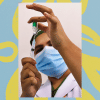2022, the year of COVID recovery, didn’t go as expected

When COVID-19 had forced mankind to go into quarantine in 2020, it had jinxed and marred the advent of a new decade. Even in 2023, I asked myself, how much did we recover from the ravaging effects of COVID and what remnants of those dark pandemic days still linger on?
In 2022, we were supposed to finally bounce back. To some extent, we did. The peak of COVID had passed, most people were vaccinated, lockdowns were eased, and we were slowly reintegrating into society. Unfortunately, many of us struggled to unlearn the unnatural lessons of isolation and social distancing.
Limitations of virtual communication forced us to put countless friends and kin on the back burner. When we finally met them in-person, stilted relationship dynamics and atrophied socialisation skills made it an unpleasant and awkward experience. Friendships fell apart. Social distancing continued to be the elephant in the room.
One would think that once we were allowed out into the world, the hustle to make up for lost time would come naturally to us. But here's the catch: having been thrust back into a sanitised version of our pre-pandemic life, we struggled to find our footing. Our pandemic survival instincts gave way to a state of languishing.
Lockdown-induced Post Pandemic Stress Disorder (PPSD), a condition still formally unrecognised, has made people listless, prone to outburst and socially withdrawn. Stagnation and emptiness pervade our lives. Many of us still aimlessly muddle through our days.
Virtual classes have stripped students of their ability to articulate and communicate in an interactive environment while causing tremendous attention deficit. In addition, students now have to tackle intense academic pressures to keep up with increased classes and to counteract session jams.
Everyone came up with different coping mechanisms to get through uncertain COVID days. We relinquished austerity. We moved at our own speeds. The depravity of lounging on our beds, binge-watching shows, and surrendering ourselves into mindless activities was a cathartic response to the horrors of pandemic.
Re-joining society meant you had to deal with overcrowded commutes and congregations. You needed to look people in the eye and *gulp* have coherent conversations. You would need to dress formally again for work or school and people would judge you for your efforts. You would be required to shoulder responsibilities, relinquishing the slovenly lockdown lifestyle. In the worst-case scenario, people would ask you how productive you were during quarantine.
Consequently, you might've simply dreaded re-entering the hierarchy infested rat race called life. For social anxious individuals, re-entry into society was a whole new ball game. Some of us dreaded catalysing infections by getting too close to people.
These uncertain variables motivated us to stay bundled up inside our homes, unbothered and drained of purpose. This apprehension towards leaving the safety of our homes and dreading human interactions after lockdown is known as "cave syndrome".
Countless people still suffer from long-COVID symptoms like depression, fatigue and physical discomfort. After experiencing intense ups and downs like the loss of loved ones, constant anxiety, isolation, financial instability or unfairness of tough choices throughout pandemic, it's difficult to rejoice in the post-pandemic normalcy.
But giving up now would be in vain. Be kinder to yourself, open up yourself to new experiences and rekindle human connections. COVID has already plundered enough from us. We mustn't let it rob us of our sense of being.

 For all latest news, follow The Daily Star's Google News channel.
For all latest news, follow The Daily Star's Google News channel. 








Comments